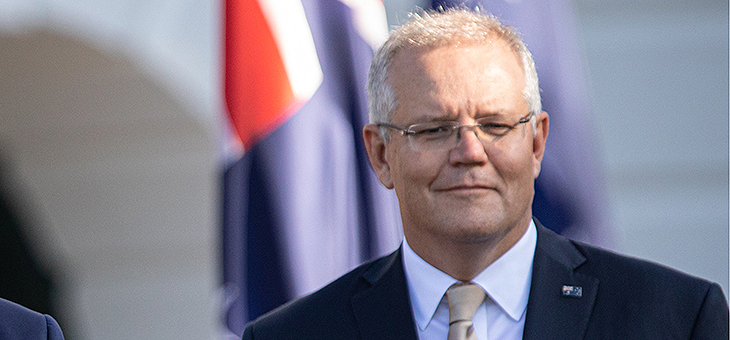Prime Minister Scott Morrison has emerged from Friday’s national cabinet meeting with a three-step plan to achieve a COVID-safe economy and society.
In a detailed press conference, Mr Morrison explained that the goal would be to move through all three of these steps to move to a COVID-safe economy by July this year.
“In this plan, we walk before we run,” Mr Morrison said. “We know we need to be careful to preserve our gains, if we wish to reclaim the ground we lost, we cannot be too timid.
“There will be risks. There will be challenges. There will be outbreaks, there will be more cases, there will be setbacks. Not everything will go to plan.”
Step one of the three-point plan will enable greater connection with friends and family.
Things that will be allowed include:
- gatherings of up to 10 people, and five guests in your own home
- children back in classrooms and in playgrounds in their communities
- recreational activities such as golf, lap swimming and boot camps
- retail and small cafes and restaurants reopening
- interstate recreational travel starting again
- an easing of restrictions for funerals with up to 30 attendees, outdoors, and 10 at weddings.
Step two will allow larger-size gatherings of up to 20 people, including for venues such as cinemas and galleries, and more retail openings.
Step three will see gatherings of up to 100 people, but the timing will depend on the success of the previous steps.
Mr Morrison explained that it was hoped Australia would progress through these three stages by July, but the responsibility for the pace of implementation would be up to the individual states and territories.
“They’ll be responsible for setting their own timetable and communicating that to their citizens and residents in their own states and territories,” Mr Morrison said.
“Premiers and chief ministers have asked me to stress there should be no expectation of step one starting on day one. Unless they are indeed already there. Moving on these steps will take some preparation.”
Movement from step to step will depend on medical evidence that suggests further easing will not present an undue risk, that widespread testing is identifying community transmission and, thirdly, public health actions are able to trace cases and trap local outbreaks.
Commonwealth chief health officer Brendan Murphy said Australia was in a good position, but it was important not to lose those gains.
“There’s not many countries in the world like Australia … in a position to start gently relaxing measures with such low case numbers,” Dr Murphy said.
“We don’t want to lose the control we’ve got. We want to make sure that outbreaks that occur are managed and controlled.”
In other news, opposition leader Anthony Albanese blasted the government over its early access to the superannuation scheme, with alleged fraud depriving many Australians of their retirement savings.
The government has now suspended access to the early release scheme, but Mr Albanese said this problem was entirely predictable.
“When the government unwisely chose to allow early access to superannuation withdrawal, which will, of course, damage people’s entitlements when it comes to their retirement, which will reduce the liquidity of superannuation funds, and distort the market investments that are made in the future by superannuation, Labor warned about the potential for fraud,” Mr Albanese said.
“Not only Labor, but the superannuation industry wrote to the minister on 1 May, on the very day that this fraud was uncovered, the minister wrote back and said ‘nothing to see here’.
“It’s very clear that this suspension is not only necessary, it could have been foreseen and, indeed, was foreseen by the superannuation industry and by Labor when we raised these issues in the national parliament.”
Mr Albanese also said the economy was unlikely to ‘snap back’ after reading the information in the Reserve Bank’s May statement.
“What the Reserve Bank estimates is that unemployment will hit 10 per cent,” Mr Albanese said. “That real household disposable income will fall by 8 per cent in June, but it will also fall by 8 per cent in December.
“What we’re looking at here is long-term impact on living standards of Australians as a result of the coronavirus crisis. And the government needs to acknowledge the idea of snapback is simply not going to work.
“They’ll need to put in place measures that keep people in employment, that promote employment, and that promote economic activity, if we’re not going to have a prolonged downturn.”
What do you think of the revised timeline for the easing of restrictions?
If you enjoy our content, don’t keep it to yourself. Share our free eNews with your friends and encourage them to sign up.
Related articles:
Older Aussies with higher risk of death
New virus strain ‘more contagious’
Time to reduce dependence on China

